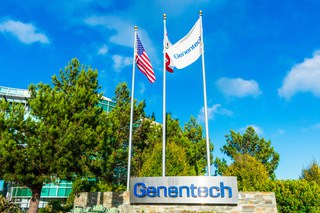
Genentech – a member of the Roche group – has announced that its phase 3 study of Tecentriq (atezolizumab) combination mets its primary endpoint of recurrence-free survival (RFS) in patients with early-stage hepatocellular carcinoma (HCC), the most common type of primary liver cancer.
The pre-specified interim analysis of the IMbrave050 study showed that Tecentriq in combination with Avastin (bevacizumab) significantly improved RFS in HCC patients with an increased risk of recurrence following resection or ablation with curative intent, compared with active surveillance.
Overall survival data was immature at the time of interim analysis, the company said, with follow-up continuing to the next analysis.
Safety for both Tecentriq and Avastin was reportedly consistent with the known safety profile of each medicine and with the underlying disease.
Results from the study will be discussed with health authorities, Genentech said, including the US Food and Drug Administration (FDA) and the European Medicines Agency, and presented at an upcoming medical meeting.
According to the American Cancer Society, it is estimated that nearly 42,000 Americans were diagnosed with liver cancer in 2022.
HCC is a complex and heterogeneous tumour most commonly associated with chronic liver disease, especially hepatitis.
If diagnosed in the early stage, surgery may be prescribed to remove the primary tumour. However, an estimated 70-80% of people with early-stage HCC experience disease recurrence following surgery, which is associated with poorer prognosis and shorter survival.
Levi Garraway, executive VP, chief medical officer and head of global product development at Roche and Genentech, said: “IMbrave050 is the first phase 3 study to show that a cancer immunotherapy combination reduced the risk of disease returning in people with this type of HCC.
“We are excited by the clinical benefit that this adjuvant Tecentriq combination may bring to people with early liver cancer and look forward to seeing more mature data to further confirm the benefit.”
As well as in HCC, the company’s Tecentriq development programme includes multiple ongoing and planned phase 3 studies across different lung, genitourinary, skin, breast, gastrointestinal, gynaecological and head and neck cancers.
In December 2022, its bispecific antibody, Lunsumio (mosunetuzumab-axgb), was approved by the FDA for the treatment of adult patients with relapsed or refractory follicular lymphoma after two or more lines of systemic therapy.
The approval was based on positive results from a phase 2 study, which demonstrated a high and durable response rate, with 80% of patients who received at least two prior rounds of therapy achieving an overall response.




